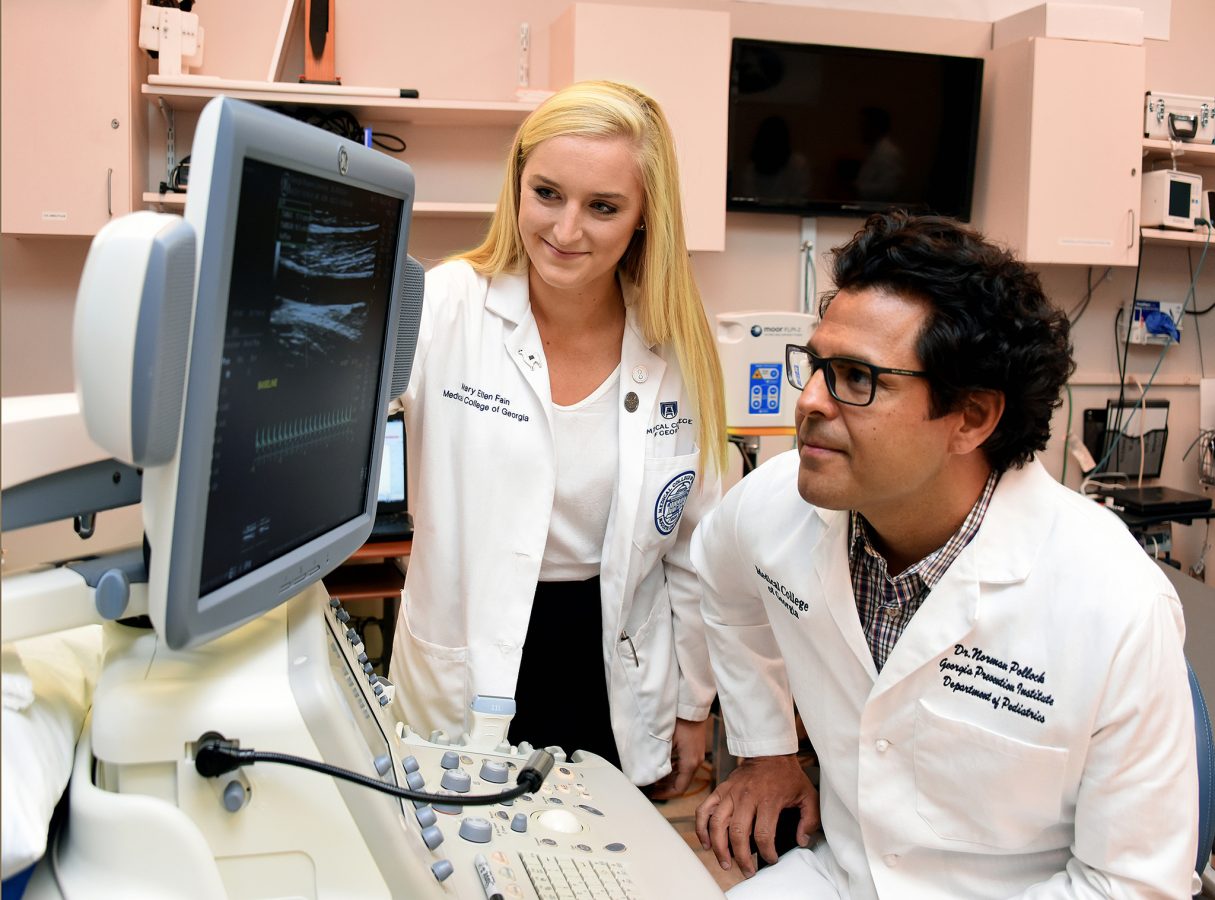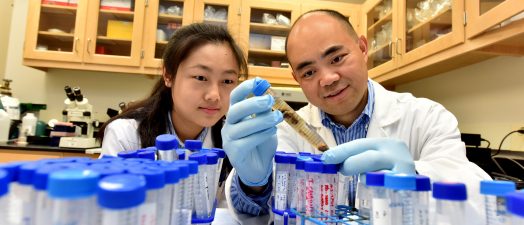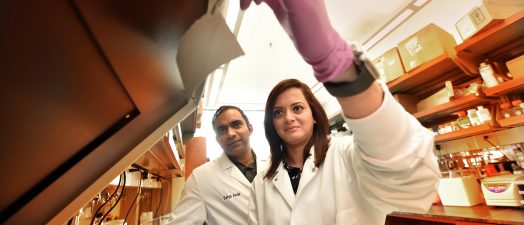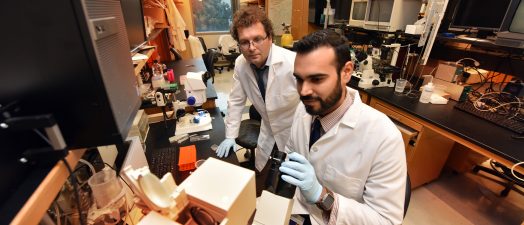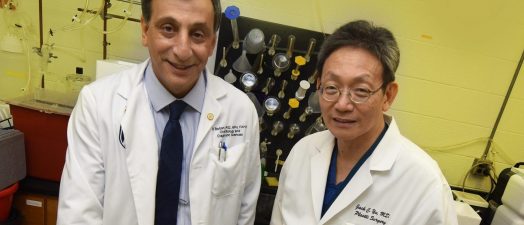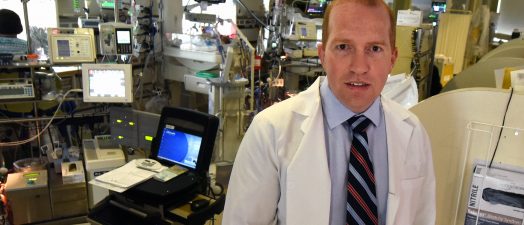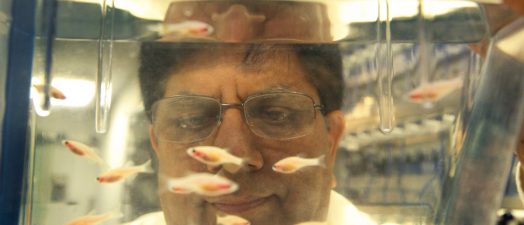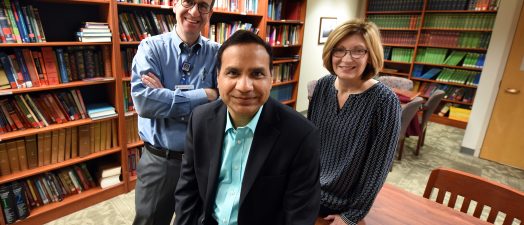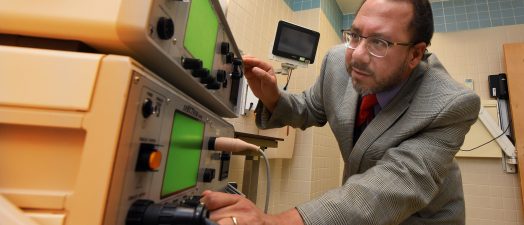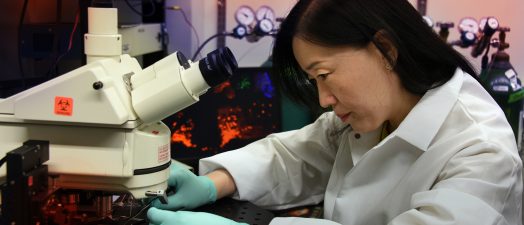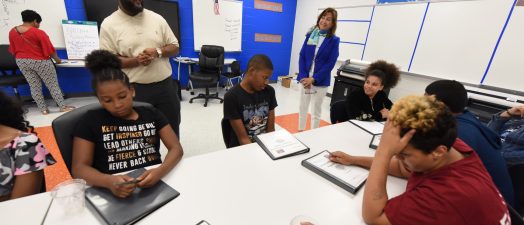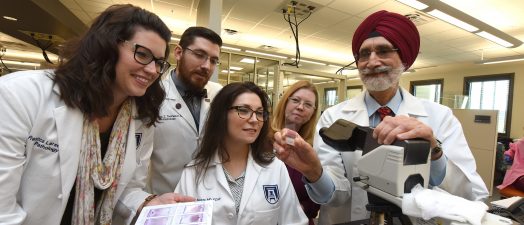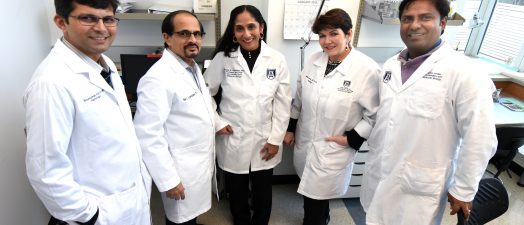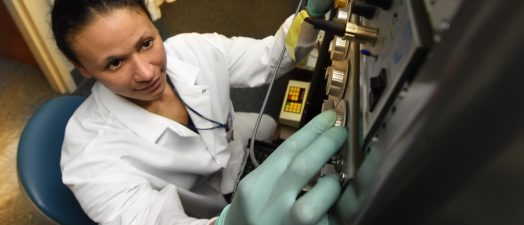Heart muscle can continue to die even after restoring blood following a heart attack, and scientists have new evidence that one way to help it live is by boosting levels of a tiny...
An enzyme induced by stress to help reduce production of damaging free radicals is also used by liver cancer to regulate two major cell proliferation pathways that enable the...
Researchers at MCG have some of the first evidence that diastolic heart failure results when there is a “critical deficit” in the ability to appropriately dilate blood vessels...
In the face of diabetes, a common condition in which glucose and levels of destructive inflammation soar, whole body vibration appears to improve how well our body uses glucose as...
It’s the proportionately of a newborn — a measure that includes both birthweight and length — that may best tell doctors whether a child is born with an increased risk for heart...
When someone is depressed and having suicidal thoughts or their depression treatment just isn’t working, caregivers might want to check to see if they have obstructive sleep...
Scientists at MCG are looking at how neural activity drives blood flow increases and how important the increases are for the health and proper functioning of neurons. Benefits of...
They are a popular pet at pet stores across the country. However, one researcher at the Georgia Cancer Center believes a small fish could be key to solving a big problem in the...
Focusing on strengthening our muscles rather than losing fat may be a better way to protect ourselves from weight-related hazards like diabetes and cardiovascular disease...
While regular exercise is clearly beneficial to children — and adults — the psychosocial health of children may benefit as much from other kinds of adult-led after-school...
MCG scientists looking at body's natural checkpoint, the enzyme CD73, and how it may convert the cell fuel that normally promotes our immune system to attack head and neck cancer...
It's a progressive eye disease that's plagued NBA superstar Steph Curry. Now scientists at MCG have a $2.1 million grant to learn more about keatoconus' causes and identify points...
MCG investigators working on associating a protein profile in the eye's fluid with obvious structural damage to the eye glaucoma causes. They think that may lead to early...
Electroconvulsive therapy isn't used often because of side effects like memory loss and poorer cognition. MCG scientists have found that using lower amplitude may negate those...
Augusta University's Dr. Terri Marin is the first neonatal nurse practitioner to join the Neonatal Kidney Collaborative.
MCG scientists are exploring how improving the function of our older fat may just help our brains and lower Alzheimer’s risk.
Strengthening families is key to preventing kids from substance abuse, MCG researchers say.
MCG researchers determine which platform is best to rapidly measure how fast the blood is coagulating during surgery.
MCG scientists hope non-invasive and better tests that measure a gene variant commonly found in bladder cancer could help improve patient outcomes.
MCG scientists have discovered the chronic activation of the Adora2a receptor is one way obesity and insulin resistance break down one of the the brain's protections against...
 Augusta University
Augusta University
